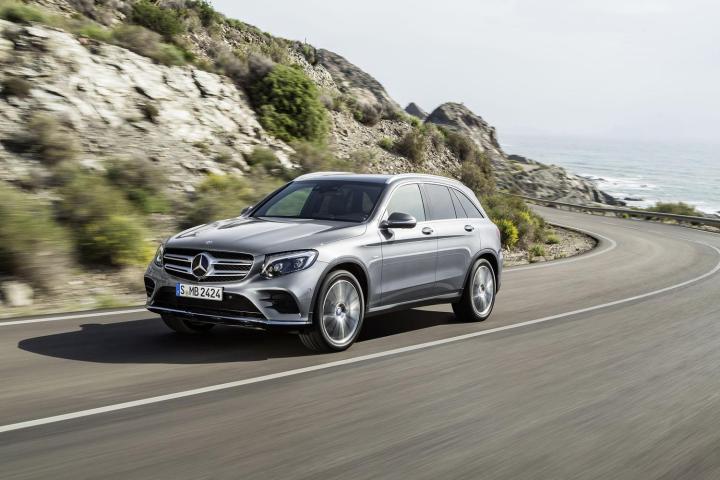
The carmaker will launch a fuel-cell version of its GLC-Class crossover next year, Mercedes R&D chief Dr. Thomas Weber said in an interview with Autocar at the 2016 Detroit Auto Show this week. Weber said Mercedes was in the middle of the car’s “roll-out phase” right now, and that engineers have been able to shrink the size of powertrain components compared to Mercedes’ last round of prototypes.
This statement jibes with previous discussions of Mercedes’ fuel-cell plans. Back in 2010 when it launched a fleet of 200 B-Class F-Cell test cars, the company hinted at a production version, then later demurred and said that the vehicle wouldn’t arrive until in 2017. In 2014, Mercedes’ head of sales and marketing, Ola Kallenius, also quoted the 2017 timeline, and noted that Mercedes’ production fuel-cell vehicle could be an SUV.
When that production vehicle finally arrives, it will reportedly be called the GLC-Class F-Cell. As with other fuel-cell cars, Mercedes R&D boss Weber expects a quick refueling time of around three minutes, but wouldn’t discuss range. There’s also no confirmation that the GLC F-Cell will be sold in the U.S., although Autocar says it will start at around 50,000 pounds (about $70,000) wherever it is sold.
While the market for hydrogen fuel-cell vehicles is still very, very small, more manufacturers seem to be expressing interest. Mercedes’ German rival Audi debuted its h-tron quattro SUV concept in Detroit this week. It’s essentially a remake of the e-tron quattro concept from the 2015 Frankfurt Motor Show, but with fuel cells instead of batteries. And the Lexus LF-FC concept that appeared at last year’s Tokyo Motor Show could preview a widely-rumored hydrogen version of the LS luxury sedan.
At the same time, Mercedes is apparently moving ahead with plans to develop more cars powered by batteries. A recent report stated that Mercedes has signed off on a platform that will underpin four new electric models, with the first due in 2018. Dubbed EVA, it’s expected to support an electric sedan and three electric crossovers.
Editors' Recommendations
- Part plug-in, part dragster, the Mercedes-AMG GLC63 is an SUV of many faces
- Mercedes-Benz’s electric EQC is one of the most affordable cars in its segment
- Toyota uses hydrogen fuel cells to power one of its Japanese factories
- BMW teases hydrogen cars again with fuel cell X5 concept
- The 2020 Mercedes-Benz GLB is a junior G-Class with room for six of your friends


